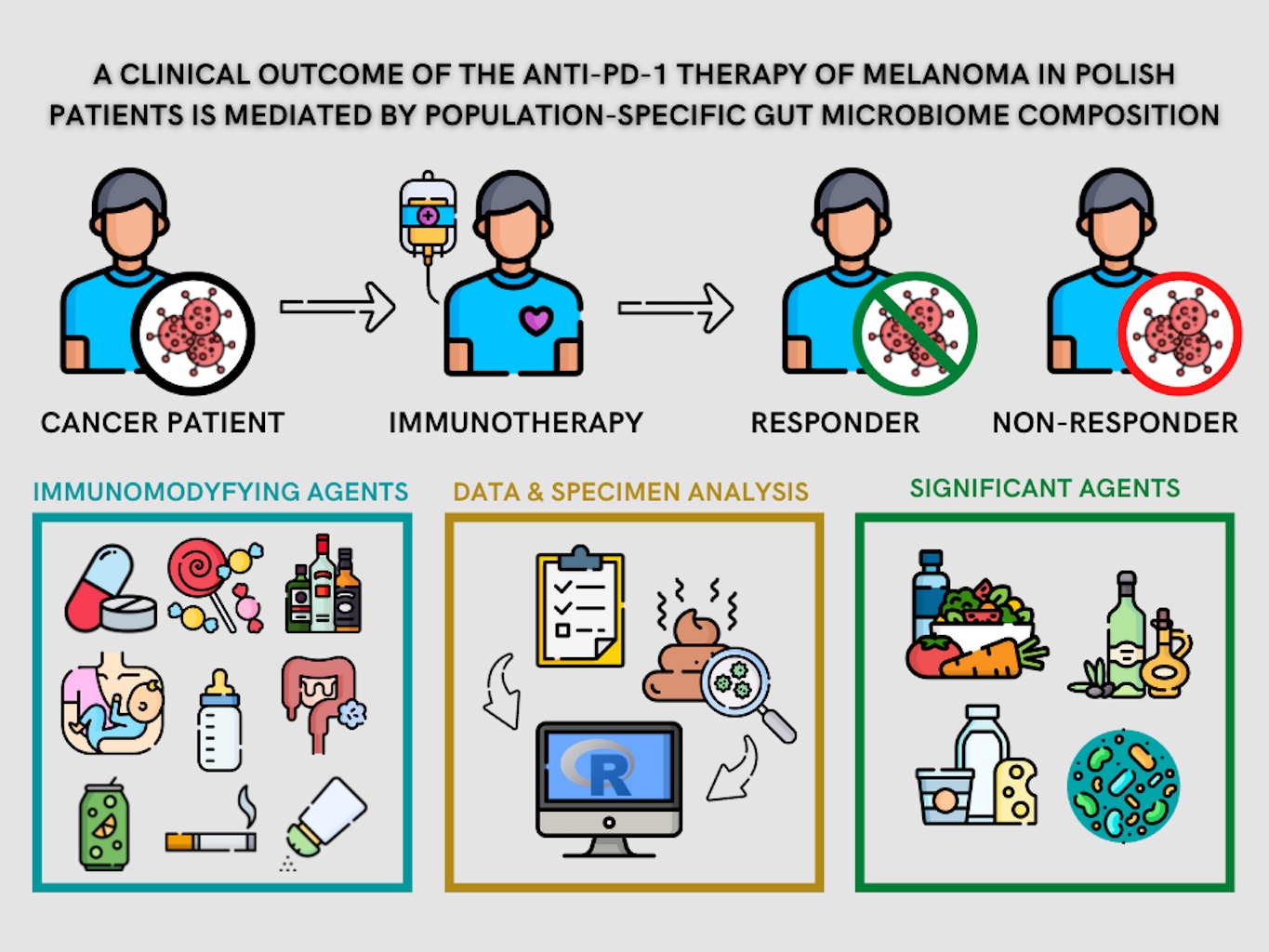Gut microbiota is considered a key player modulating the efficacy of immune checkpoint inhibitor therapy. The study investigated the association between response to the anti-PD-1 therapy and the baseline gut microbiome in the Polish cohort of melanoma patients, alongside selected agents modifying the microbiome. Sixty-four melanoma patients enrolled for the anti-PD-1 therapy and 10 healthy subjects were recruited. Response to the treatment was assessed according to the response evaluation criteria in solid tumors, and patients were classified as responders or non-responders. The association between selected extrinsic factors and response was investigated using questionnaire-based analysis, and metataxonomics of the microbiota. The Bacteroidota to Firmicutes ratio was higher, and the richness was decreased in the responders. The abundance of Prevotella copri and Bacteroides uniformis was related to the response, whereas non-responder gut microbiota was enriched with Faecalibacterium prausnitzii and Desulfovibrio intestinalis, and some unclassified Firmicutes. Dietary patterns, including plant, dairy, and fat consumption, but also gastrointestinal tract functioning were significantly associated with the therapeutic effects of the therapy. The specific gut microbiota alongside diet were found associated with response to the therapy in the Polish population of melanoma patients.

